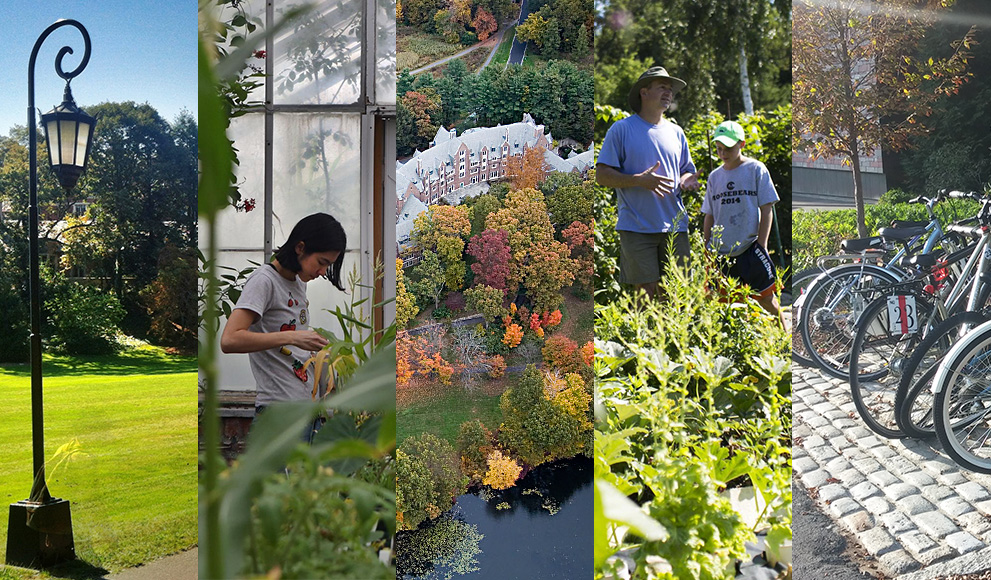Proposed Sustainability Plan Charts a Course for the Next 10 Years

After nine months of intensive planning and research, the Advisory Committee on Environmental Sustainability has launched a first draft of its Sustainability Plan.
"Wellesley is a leader in the education of women, and some of the most pressing issues of the 21st century are issues related to sustainability," said Jay Turner, associate professor of environmental studies and advisory committee chair. "We have a real opportunity to align our values as an educational institution with our practices as a community."
The draft establishes far-reaching goals and also highlights the College’s many successes in recent years. Among those accomplishments: a 39 percent reduction in the amount of potable water used at the College; the adoption of LEED (Leadership in Energy and Environmental Design) Gold standards for all major building projects; and an annual Sustainable Move-Out and Move-In that diverts tons of leftover clothes, appliances, and other goods from the dump and back to incoming students and local nonprofits.
The new plan is a natural outgrowth of the sustainability goals first announced in 2008, and establishes two-, five-, and 10-year targets for eight key sectors: academic; buildings; climate and energy; food and dining services; landscape; purchasing and waste; transportation; and water.
Short-term goals include phasing out plastic bags at campus retail operations and making sure that 75 percent of the office paper purchased by the College will have at least 30 percent post-consumer-recycled content. Longer-term goals include phasing out the purchase of bottled water across campus; increasing the use of locally grown, organic, and sustainable food items; and providing support for faculty who want to integrate sustainability into their courses.
The plan also aims to integrate sustainability into nearly every aspect of campus life and to make it easier for people to make sustainable choices. The recycling bins will be bigger than the trash cans, for example. Motion detectors for lighting will be used in hallways, and there will be more support for people who want to carpool.
"Students care about the environment, and they want to be part of a community where people are environmentally conscious," said Turner. "Faculty and staff also care deeply about the environment, and you can see evidence of that all around campus."
For example, of the College’s 10 hydration stations, three were purchased and installed in the Science Center, thanks to a grant proposal written by Annie Roth Blumfield '17 that was funded by The Class of 1957 Green Fund. Also, Roth Von Schmidgall, a groundskeeper specialist at the College, tested zero-emissions leaf blowers and mowers at the Athletic Fields; not only are the battery-powered tools more sustainable, they are also quieter.
Faculty, staff, and student representatives serve on the advisory committee, which has worked with different constituencies across campus to ensure that the plan makes sense for all, and to find out what makes people excited. “We want to create a groundswell of enthusiasm,” said Turner. "We're hoping the sustainability plan will set in motion changes for many years to come."
The committee is seeking feedback from the campus community about the plan through open feedback sessions and through a contact form on the plan’s website. The plan will be finalized this winter and presented to the Board of Trustees in the spring.
